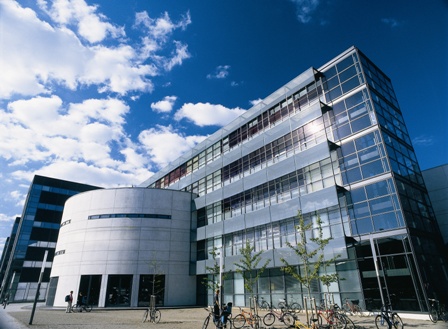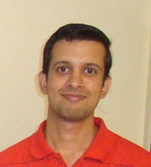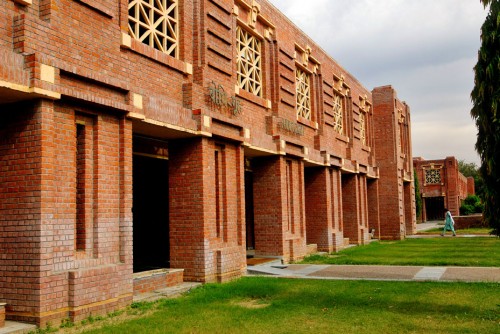Having spent more than two months as part of the international student exchange program attending classes at Copenhagen Business School, Denmark has given me adequate time to understand first hand, the significant differences between the management education environment in Indian Institute of Management, Lucknow and Copenhagen Business School, Denmark.
[caption id="attachment_3899" align="aligncenter" width="400"] Library at CBS[/caption]
Library at CBS[/caption]
Faculty: All the teachers in my 4 courses I had at CBS were significantly older, with a wealth of experience in either the industry or in academic research, than their Indian counterparts. As a result, they would bank more on their own experience or body of research work to teach than on slides from the textbook’s website. Only a few models here or there would be from the text where relevant. My professor in Business-to business marketing would always spend the first 15 minutes picking an article from that day’s paper and discussing B2B’s relevance to it. This methodology was added motivation to listen in class since, if you missed something, it would most likely remain missing as you were unlikely to retrieve the information shared from the teacher’s personal experiences on the internet.
Students: The attitude of the European students was in stark contrast to us. Most people I talked to were genuinely interested in the course and would be very sincere in coming for the class prepared with the assigned reading(s). As a result, the class participation from these folk was, for the most part, authentic. They would not talk a lot, but when they chose to, it was worth lending an ear. I honestly found only a few questions/discussions in my 2 months here from my European peers that I could classify as ‘globe’. I have also had the opportunity of looking at some of the report submissions made by the European students. As they tend have more work experience than us, it was reflected in these submissions. For example, a student who was a manager in an MNC had submitted a report in a course on building trust in international firms, wherein he talked about the different behaviours of his Indian, Italian and the Scandinavian counterparts. He went on to say, whenever the Indian manager had a query or wanted to know if the work was done, he would always resort to email, while the Scandinavian always called. The Italian had a propensity to exaggerate/dramatize the problems she faced with her clients. Over a period of time each began to understand one another better and made adjustments. I probably learnt more HRM from reading this student’s assignment than my entire HR course in my first year! Here was a true example of how in an MBA program, you learn not just from the faculty, but also from your peers! The Europeans (and the Chinese) also took their exams far more seriously than we ever did. They prepared for the exams for weeks together. However, I attribute this disparity in efforts to the fact that most Indians visiting CBS view it more as a Euro trip than an educational one.
[caption id="attachment_3898" align="aligncenter" width="448"] Copenhagen Business School - Main Building[/caption]
Copenhagen Business School - Main Building[/caption]
Student – teacher interaction: Students and teachers interacted as peers. No ‘Sir’ or ‘Ma’m’ to be heard. The teacher would indulge in a very natural conversation with the student during class participation. Most Indians would tend to preface their personal questions after class with a ‘Sir’.
Oral exams: A lot of the courses had an oral exam (viva). From my friend’s experiences, I could gather that you are expected to be pretty thorough with the theories discussed in the class from the text. Apart from knowing how to apply the theories, you also were sometimes quizzed on how the authors of 2 texts differed in their approach to a particular problem. So, an in depth reading of the texts was needed to score well. Quite a few of my friends ended up barely making the passing grade as they only read from the slides.
Assignment evaluation: The most noticeable difference in the evaluation of the assignments was the strict requirement that they be original. Any hint of plagiarism was strictly forbidden and heavy punishment, ranging from failing the student to disbarring him, was guaranteed. Hence, we all had to work doubly hard to ensure every website we used in helping us build our report was listed in the reference. Even the management models in our reports used had to meet this requirement.
Course rigor: The course rigor was much lower than what we experience back in India. Many courses had only 2 or 3 classes (out of roughly 10) with a pre reading or a case which had to be read before coming to class. No group presentations or everyday submissions. The course my friend had taken in operations had no quantitative aspect to it, which came as a big surprise.
Class duration: Most classes were once a week, and ran for 3 – 4 hours! This was shocking to see at first. After talking with European students, I came to learn that most students are working part time and so, coming to CBS 2 – 3 days a week and working the rest was the norm. However, this meant long sessions per subject, once a week. While I understand that there is a legitimate need for this type of session, I wonder about its effectiveness. It is difficult for almost any student anywhere to concentrate for more than 1 hour continuously, and 3 – 4 hours is outrageous. The teacher does give a break for 10 min after every hour or so, so the problem is mitigated to an extent. But only to an extent, for, you are basically having 3 classes of the same subject continuously.
These are the little things that caught my eye at my short stint in CBS. I certainly believe that there are some good things we can borrow from them (like the lack of over reliance on slides) to further improve the quality of our management education.

R Maheswaran is a second year PGP student at IIM, Lucknow. He was an atheist until he read the works P G Wodehouse. A computer science graduate from NIT, Tiruchi, he has worked with Cisco in the past. He interned with Microsoft in the summers.
Know everything about Student Exchange here
Results of the InsideIIM Recruitment Survey 2012
Insights@InsideIIM : A must read section for any management education aspirants, current students or recruiters

